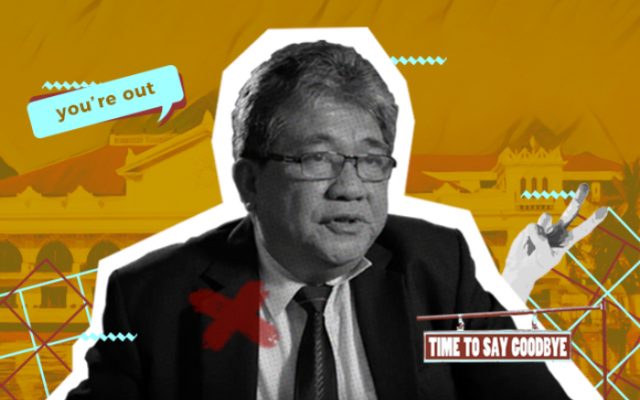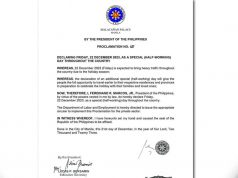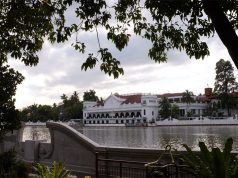
A Malacañang order to remove Overall Deputy Ombudsman Melchor Carandang from his post was met with condemnation by administration’s critics and those in the legal field.
Recent jurisprudence, however, had ruled against the validity of a president’s removal of a deputy ombudsman.
Retaliation?
The order released by the Office of the President pointed to alleged corruption and partiality by Carandang for investigating Duterte’s bank accounts in 2017.
Carandang in a media interview last year said that he had obtained questionable bank transactions by the Duterte from 2006 to 2012 from the Anti-Money Laundering Council.
The AMLC, however, denied they had granted Carandang’s request to access the documents.
Lawyers Manuelito Luna and Eligio Mallari, also among the complainants in the impeachment cases filed against former chief justice Maria Lourdes Sereno and former Commission on Elections commissioner Andres Bautista, later filed a complaint against Carandang with the Office of the President.
Valid?
The 2014 Supreme Court decision in Gonzales v. The Office of the President, however, ruled that removal of deputies in the Office of the Ombudsman fell under the administrative disciplinary jurisdiction of the Ombudsman himself.
The Supreme Court revisiting the independence of the Office of the Ombudsman protected by the Constitution was contravened by Sec.8(2) of R.A 6770, which gave the president the power to remove a deputy of the Ombudsman.
“In more concrete terms, we rule that subjecting the Deputy Ombudsman to discipline and removal by the President, whose own alter egos and officials in the Executive Department are subject to the Ombudsman’s disciplinary authority, cannot but seriously place at risk the independence of the Office of the Ombudsman itself,” wrote former Supreme Court associate justice Arturo Brion in the decision.
Critics are arguing that the order is retaliation for Carandang’s investigation into alleged ill-gotten wealth.
THE ONLY THING WE NEED TO KNOW ABOUT THE CREDIBILITY OF THE ANTI-CORRUPTION DRIVE OF THIS ADMINISTRATION.
"Malacañang has dismissed Overall Deputy Ombudsman Carandang, a year after he launched an investigation into President Rodrigo Duterte's alleged ill-gotten wealth." https://t.co/ZoUaKKWXgb
— florin hilbay (@fthilbay) August 1, 2018
Newly-appointed Ombudsman Samuel Martires, a fraternity brother of the president, declined to comment on the order, saying that he has yet to assume office.
There is no provision in the 1987 Constitution that expressly grants the president the power to subsume the Ombudsman’s powers in any event.
One of the retained provisions in R.A 6770, Sec. 8(3) however provides that the president may designate any of the deputies or the special prosecutor as the Acting Ombudsman in the event both the Ombudsman and Overall Deputy Ombudsman are unable to serve. — With research from Jasmine Salanga; Artwork by Uela Badayos









